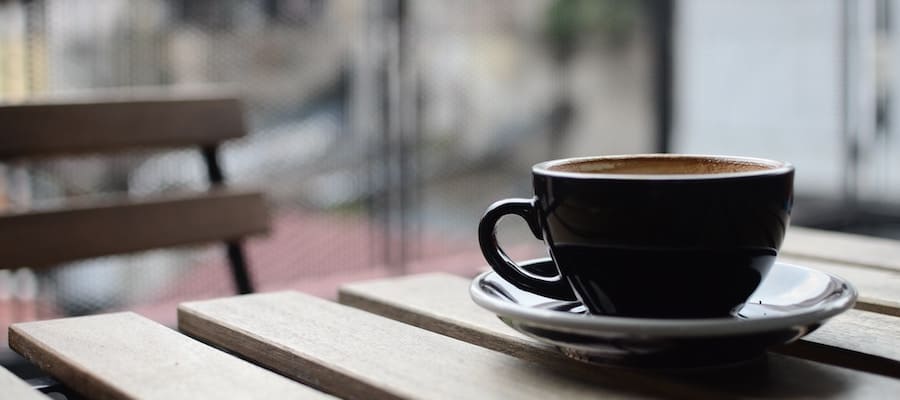Is Coffee a Diuretic?

No one can deny that your morning joe gets us out of bed in the morning. Indeed, its caffeinated kick provides an often much-needed boost to get the day started the right way. But is Coffee a diuretic? Can it help with toilet ‘duties’? This is what we’ll be exploring below.
Here, we will answer once and for all, “is Coffee a diuretic?” We will also look into the meaning of this term and its benefits, as well as whether Coffee has other detoxifying qualities worth noting.
And once you know the facts, you can buy from us! The Kent and Sussex Tea and Coffee Company pack every Coffee, Loose Tea and Tisane fresh to order. What more could you want?
Table of contents

The Meaning of “Diuretic”
The phrase “Diuretic” refers to promoting the formation of urine. As unpleasant as it sounds on the surface, it has its purposes. In essence, taking a diuretic enables someone to excrete excess water in several ways.
It could, for instance, mean inhibiting the kidney’s ability to reabsorb sodium, which in turn enhances the loss of sodium and consequently water in the urine.
Furthermore, it could also take place by enhancing the excretion of both chloride and sodium in the urine, which then sees more water excreted alongside these constituents.
Another way it could work is by blocking the exchange of sodium for potassium. This results in excretion of sodium and potassium, but more so of the former than the latter, thus maintaining more potassium than sodium.

Why is it Important?
Medical experts sometimes prescribe diuretics, most often water pills, to rid the body of extra fluid or salt (sodium chloride). People with heart failure, high blood pressure, swollen tissues and kidney disease commonly use these pills to treat such conditions. But how, exactly, does this benefit you?
Extra fluid in the body makes it difficult for the heart and several other parts of the body to function properly. By enabling the excretion of excess fluid, you are taking the strain off several organs.
Additionally, some people use diuretics for a detox. This term refers to detoxification, which means removing potentially harmful toxins such as alcohol from the body.
Most are familiar with the concept of Detox Teas, which, according to preliminary research, might help with acne and even promote weight loss. There are many types of Tea with diuretic qualities.
This includes (but is not limited to) Green, Black, White, Oolong, Peppermint, Nettle and Fennel Tea. But still, the question begs: is Coffee a diuretic?

Is Coffee a Diuretic?
The evidence (and reasoning behind it) is irrefutable: Coffee is a diuretic. Albeit a mild one. The primary way this works is the amount of Caffeine in Coffee and Tea, which researchers note can help you to produce more urine. One particular study can explain how and why.
It saw 12 participants abstain from caffeine for five days before consuming 642-mg of caffeine in the form of Fresh Coffee. The results determined that volunteers increased their urine output after once again taking this stimulating chemical compound.
Another research project involving eight men taking different amounts of caffeine showed similar findings. After examining the influences of 45-mg, 90-mg, 180-mg and 360-mg of caffeine, scientists concluded that the 360-mg dose had the greatest diuretic ability.

Is Decaf Coffee a Diuretic?
The process of decaffeination, as its name suggests, removes the vast majority of Caffeine in Coffee. Any Coffee (or Tea!) can be decaffeinated, although this process doesn’t remove every last particle (approximately 2% of caffeine remains).
Nevertheless, it gets rid of enough to deem it practically useless when it comes to being a diuretic.
There are, of course, other reasons to choose Decaffeinated Coffee. Despite the fact it isn’t a good diuretic, it remains an excellent choice for those who’re caffeine sensitive or pregnant.
Indeed, NHS Choices recommends that pregnant women not exceed more than 200 mg of caffeine daily. With Decaf Coffee, there is little to worry about.

Coffee Diuretic Effect
Put simply (and bluntly), the diuretic qualities of Coffee enable you to form more urine. But does this mean that Coffee is dehydrating? Strangely, no. Contrary to popular belief, and somewhat bizarrely under the circumstances, your morning cuppa contributes to your daily fluid requirement. While caffeinated infusions may help you urinate, they don’t appear to increase the risk of dehydration.
Confused? Allow us to explain. We’ve already established (more than once, in fact) that a diuretic works by enabling the body to produce urine.
However, excess urination doesn’t necessarily lead to dehydration unless you fail to drink more fluids. Take water, for instance. When you drink large volumes to stay hydrated, you urinate more. And yet you’re still hydrating yourself!
It also might be worth noting that Coffee, in some cases, is a mild laxative. Some believe this is again because of caffeine acting as a stimulant, which might induce bile production and increase bowel movement.
Research from 1990, on the other hand, brings to light another theory. It suggests that drinking Coffee increases rectosigmoid motility. Truth be told – no one knows precisely how Coffee is a laxative.

Conclusion
A diuretic works by promoting urine, which benefits people with conditions such as heart failure, high blood pressure, swollen tissues and kidney disease.
Both Tea and Coffee (as well as other caffeinated beverages, including Yerba Mate) are considered diuretics due to their prevalence in caffeine. However, Decaf Tea and Coffee lacks this ability.
Now that we’ve cleared that up, you can browse our vast selection of over 70 freshly roasted coffees, why not try our:
The possibilities are nearly endless. Why not find your new favourite brew today with The Kent and Sussex Tea and Coffee Company? We guarantee you won’t be disappointed no matter what you choose!

 Loose Leaf Tea
Loose Leaf Tea Pyramids
Pyramids Tea Bags
Tea Bags Africa
Africa Assam
Assam Ceylon
Ceylon Chinese
Chinese Darjeeling
Darjeeling European
European Indian
Indian Japan
Japan Nepal
Nepal South East Asia
South East Asia Ayurveda Tea
Ayurveda Tea Black Tea
Black Tea Chai Tea
Chai Tea Flowering Tea
Flowering Tea Fruit Tisanes
Fruit Tisanes Green Tea
Green Tea Herbal Tea
Herbal Tea Matcha Tea
Matcha Tea Oolong Tea
Oolong Tea Organic Tea
Organic Tea Pu erh Tea
Pu erh Tea Rooibos Tea
Rooibos Tea White Tea
White Tea Asian Coffee
Asian Coffee Caribbean Coffee
Caribbean Coffee Central American Coffee
Central American Coffee South American Coffee
South American Coffee Coffee Blends
Coffee Blends Decaffeinated Coffee
Decaffeinated Coffee Espresso Coffee
Espresso Coffee Ethically Sourced Coffee
Ethically Sourced Coffee Flavoured Coffee
Flavoured Coffee Organic Coffee
Organic Coffee Single Origin Coffee
Single Origin Coffee Chocolate 1
Chocolate 1 Chocolate 2
Chocolate 2 Chocolate 3
Chocolate 3 Chocolate 4
Chocolate 4 Chocolate 5
Chocolate 5 Chocolate 6
Chocolate 6 Chocolate 7
Chocolate 7 Chocolate 8
Chocolate 8 Chocolate 9
Chocolate 9 Loose Tea Filters
Loose Tea Filters Tea Accessories
Tea Accessories Tea Bricks
Tea Bricks Tea Caddies
Tea Caddies Tea Caddy Spoons
Tea Caddy Spoons Tea Gift Ideas
Tea Gift Ideas Tea Infusers
Tea Infusers Tea Strainers
Tea Strainers